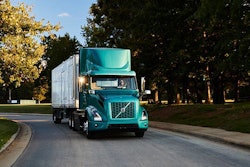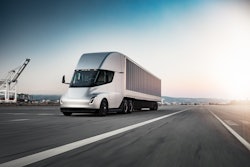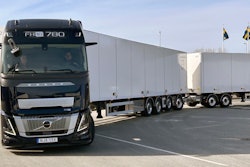Electric trucks will never work due to weight. The more the truck weighs, the fewer miles it can travel.
I'm sure you've heard those claims as two strikes against the electrification of trucking. The math checks out. Batteries are for sure heavy. Just one standard vehicle battery can weigh up to 50 pounds. By comparison, a gallon of diesel fuel weighs about 7 pounds.
And the more you ask a battery to do, the shorter amount of time in which it can do it. Your cell phone is an example of that. Watching Netflix can burn down a full charge in a matter of hours.
Jula Logistics' 105-foot rig is powered by Scania truck and it drags two containers on each trip. European trucks are allowed to carry 40 metric tons and bring a 12 meter (about 40 feet) container. Since 2015, Jula Logistics uses a vehicle twice that size. With a total weight of more than 70 tons (including load and trailer) Jula Logistics might not be the bast candidate for electrification, right?
Not so fast. Jula Logistics, headquartered in Skara, Sweden, already saves 70% on energy and emissions per transported unit by simply doubling up loads, and the company is now looking to slash those emissions to zero by going electric early next year.
Jula Logistics' cargo arrives to the port in Gothenburg by boat where it is then stowed onto a train that goes to Falköping. From there, the cargo is carried by truck to a warehouse in Skara. Jula Logistics CEO Lennart Karlsson said the carrier would make the chain of transport even more sustainable by installing solar panels on the roof of its warehouse.
Intermodal work is one of the strongest business cases for electric since it's low-mileage and consistently near a terminal. But over 100 feet long and 140,000 pounds? Can't say I saw that coming.









